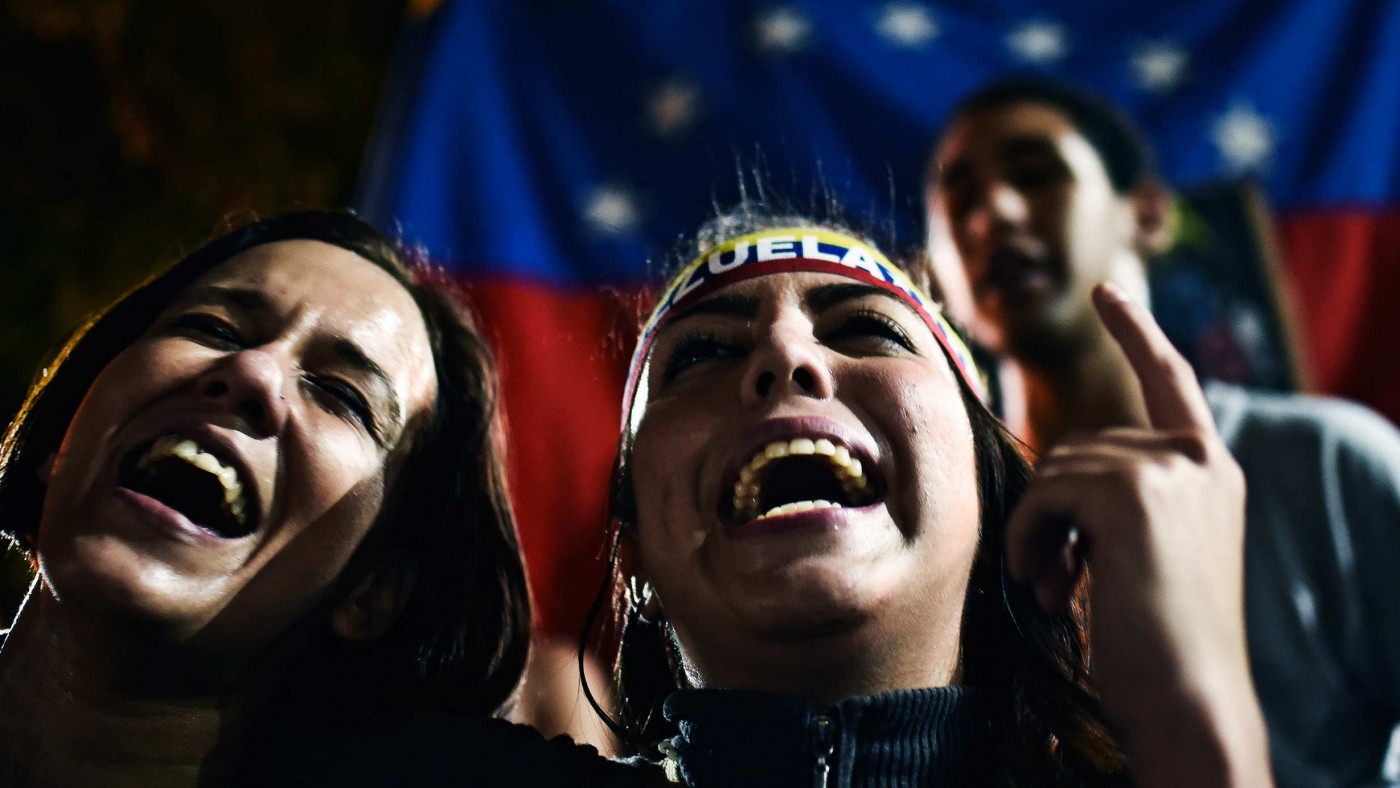Following our article last week Is Venezuela about to vote out socialism? , Venezuelan electoral authorities have confirmed that the opposition has won a key two-thirds majority.
Even if President Nicolas Maduro does veto amnesty laws for jailed opposition politicians, the 2/3 majority means the Democratic Unity coalition can now make sweeping changes and can challenge the President. This includes calling a possible referendum on Mr Maduro’s leadership.
This is pretty serious – the opposition will be able to call this when his presidency reaches its halfway point in April next year.
The parliamentary elections themselves can be taken as a referendum on Maduro, seeing as he was handpicked, not elected, to succeed Hugo Chavez in the governing United Socialist Party of Venezuela (PSUV) ‘s socialist policies.
Maduro is safe for now, however, as a referendum on his leadership isn’t top of the opposition’s agenda. Their response to the parliamentary victory has been to press on with lobbying the government to change its statist economic policies.
“We urge the government to stop crying and start working,” opposition leader Jesus Torrealba said.
Maduro would be wise to listen.
“If Maduro doesn’t change we’ll have to change the government. But the opposition’s response to the economic crisis right now can’t be more politics,” said Henrique Capriles – who lost to Mr Maduro in the 2013 presidential elections.
He is referring to the looming food shortages for Venezuelans. Venezuela has been hit hard by the continuing low price of oil, its main export, and scarily high inflation rate. But Maduro has blamed the situation on an “economic war” waged by the opposition, including the private sector and “international interests” that hide goods from supermarket shelves to make the government look bad.
However, Sunday has shown that the wider Venezuelan society is no longer unquestioning of the PSUV. Even several of the party faithful working class have come to despise the corruption that was allowed to proliferate under Maduro’s rule.
Even if recommended economic remedies such as lifting price controls (which have been deterring investors as they make it difficult to take money back out of the country) are taken, it will take a long time before the country of 30 million is back on its feet. Not only will neither side want the political cost of the necessary urgent economic measures, but the new legislators only take their seats in Congress in January. Between that time there is still a real risk for things to get worse.
Mr. Chávez and Mr. Maduro have made supporters in Congress pass a law giving them powers to issue their own decrees several times in the past: in 2008, after the opposition won a big mayoral election in the capital, Mr. Chávez transferred its budget and powers to a position under his control. It is not unlikely that the government will again try to bypass Congress altogether.
The hope is that as the Chavismo movement gradually comes to terms with scale of its defeat, it might consider change, even if it keeps up its revolutionary rhetoric. The new supermajority opposition combined with a deteriorating economy (undergoing its worst contraction since independence from Spain two centuries ago) will put constant pressure on the government to adjust or risk losing even more support.
Whilst queues still form outside supermarkets for basic goods, it is time Maduro and the PSUV stopped believing so much in their own invincibility.


